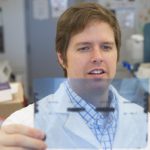Multiple myeloma is a cancer of the blood and is the second most frequently diagnosed blood cancer in the US. Every year, about 30,000 patients are newly diagnosed, and about 12,000 die from this cancer. The main symptoms include anemia, bone pain, kidney failure, and infections. The most recent treatments have improved patient survival from about 3.5 to 5 years. Unlike some other blood cancers, myeloma still cannot be cured. Thus, the development of new drugs and treatments is essential. The purpose of our study is to understand how an understudied class of genes, called long noncoding RNA genes (lncRNAs), participates in the development of multiple myeloma and may be used to develop entirely new treatments. Specifically, we propose innovative approaches to investigate a specific lncRNA gene, MALAT1 (metastasis-associated lung adenocarcinoma transcript 1) and how it functions in the repair of damaged DNA to promote the initiation and progression of multiple myeloma. We recently discovered that the MALAT1 gene is involved in an alternative DNA repair network that has seldom been studied in multiple myeloma. We believe that MALAT1 modulates the transition to advanced myeloma and myleoma that occurs outside the bone marrow. Our fundamental goal is to establish how MALAT1 regulates the repair of DNA damage and therefore its functional significance in multiple myeloma initiation and progression. This entirely novel knowledge will open new avenues for patient therapy and ultimately improve patient outcomes.
State: Ohio
Lewis Shi, M.D., Ph.D.
Volunteer Grant funded by the 2018 V Foundation Wine Celebration in honor of John and Biserka Noval
Cancer is a leading global health concern. Until recently, cancer patients are normally treated with surgery, pharmaceutical reagents that can kill tumor cells (chemotherapy), and radiation (radiotherapy). In recent years, scientists and doctors have been trying to improve patients’ own immune function to combat cancer, known as immunotherapy. Cancer cells can fool the immune system by expressing some markers that can inhibit immune function. These markers are called “immune checkpoints”, including CTLA-4 and PD-1. Subsequently, blocking “immune checkpoints” with reagents (anti-CTLA-4 and anti-PD-1) could enhance immune function and result in impressive curative effects in some patients with cancer. Yet, a lot of patients do not respond to anti-CTLA-4 and anti-PD-1. In order to broaden the patient populations that can benefit from these novel reagents, we plan to change the metabolic features of the microenvironment that tumor cells live in. We hope doing this will improve the function of immune cells, which then causes non-responsive tumors to respond to anti-CTLA-4 and anti-PD-1 treatment. Our studies might also identify some markers that can help doctors in selecting the right patients for these therapies. Our long-term goal is to translate our findings from bench to bedside by designing clinical trials to test combination therapies, particularly in cancer patients that have been non-responsive to anti-CTLA-4 and anti-PD-1 therapies.
In-Kwon Kim, Ph.D.
Vintner Grant funded by the 2018 V Foundation Wine Celebration in memory of Mary Weber Novak
A hallmark of cancer is a defective repair of DNA damage, which supports genetic alterations to drive cancer growth and resistance to drugs. Therefore, effectively targeting DNA repair defects of cancers is perhaps the most attractive strategy to kill cancer cells. Indeed, inhibition of DNA repair by specific small-molecule enzyme inhibitors has proven to be effective in selectively killing breast cancers that already have defective DNA repair function. However, cancer cells frequently develop resistance to these drugs, and therefore there is a critical need to develop safe and effective alternatives to current cancer drugs. A reversible protein modification, called poly(ADP-ribosyl)ation, is essential for DNA repair. ARH3 digests poly(ADP-ribose) to protect cells from poly(ADP-ribose)-mediated cell death. Cells lacking the gene that encodes the ARH3 protein are healthy yet show an increased poly(ADP-ribose)-mediated cell death following DNA damage. This suggests inhibition of ARH3 as an effective strategy to kill cancers with high poly(ADP-ribose) levels. We have found unique structural features in ARH3 that are important for its function, and developed new tools to study the ARH3 function. In this proposal, we seek to develop small molecules that specifically inhibit ARH3 function by focusing on the mechanisms underlying the ARH3 function. Our proposed research will advance our understanding of the role of ARH3 during cellular responses to DNA damage and contribute to the development of new cancer drugs.
David Cohn, M.D.
Funded by 2018 Kay Yow Cancer Fund Final Four Research Award
Endometrial cancer (EC) is the most common gynecologic cancer in the developed world, and the 4th most common cancer in women in the United States, with over 60,000 diagnoses expected in 2017. While most women diagnosed with EC have a favorable prognosis following hysterectomy, a subset have poor outcome despite what is thought to be a “low risk” disease. Identification of factors that predict poor outcome have been elusive to date. With the expansion of the knowledge of the genetic basis of cancer, we and others have begun exploring “molecular” prognostic factors – the genetic signature of the cancer that may predict outcome. This proposal aims to study a large sample of women with EC, testing their cancer for its genetic signature, and correlating this signature with clinical outcome. Identification of the signature that predicts outcome will allow for a more refined approach to identification of women who would benefit from additional therapy following hysterectomy to improve survival. This will be done in a process that is able to be replicated in most hospital laboratories, allowing this project to be relevant and accessible in all communities in which women are diagnosed with this disease.
John Cunningham, Ph.D.
Nucleotides are the building blocks of our genetic material and must be replicated every time a cell divides. Chemotherapeutic drugs interfering with nucleotide metabolism exploit this requirement and are a valuable weapon in the oncologist’s arsenal. However, the cytotoxic properties which make these compounds so efficacious in killing cancer cells also wreak havoc on normal proliferating cells and tissues. In order to create the next generation of drugs that inhibit nucleotide metabolism, we must identify novel targets that are specifically required by cancer cell, but not normal cell, proliferation and survival. My discoveries have identified one such target – the enzyme phosphoribosyl pyrophosphate synthetase 2 (PRPS2). PRPS2, and its paralog PRPS1, generate a critical precursor necessary for producing all nucleotides and function as a ‘molecular throttle’ capable of increasing or decreasing the rate at which these genetic building blocks are made. While targeting this metabolic enzyme represents a powerful approach to stymie nucleotide production, the redundancy afforded by the existence of two distinct forms of the same enzyme also presents a phenomenal opportunity for selectively killing cancer cells. In line with this, I have demonstrated that PRPS2, but not PRPS1, is specifically upregulated and required by cancer cells. This is in contrast to normal cells and developing organisms which require PRPS1, but not PRPS2. This proposal seeks to unravel the molecular basis for this selectivity through use of novel mouse models and structure/function studies, thus pinpointing a putative mechanism of action and developing a rational basis for future drug development.










